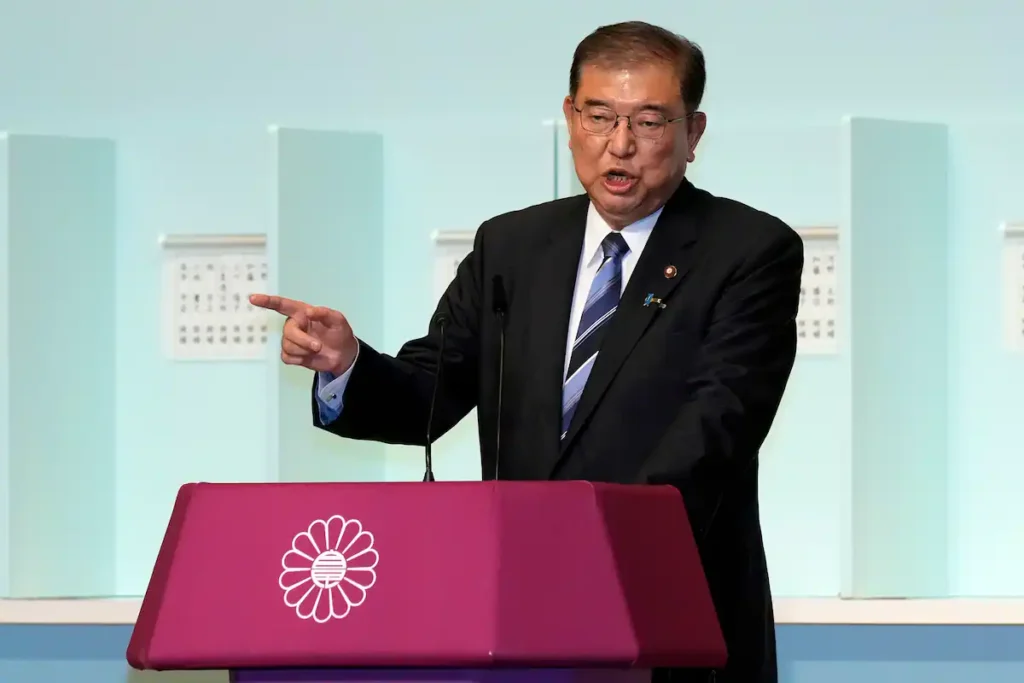AUTHOR : LLOYD MAHACHI
Japan’s Liberal Democratic Party (LDP) has elected Shigeru Ishiba as its new leader, positioning him to become the country’s next prime minister. Ishiba’s victory comes after a contentious leadership contest, marking his fifth and final bid to lead the embattled LDP.
The LDP has ruled Japan for most of the post-war era but faces turbulent times, rocked by scandals and internal conflicts that disbanded its once-powerful factions. Outgoing Prime Minister Fumio Kishida announced last month he would not seek re-election, prompting the leadership contest.
Ishiba, 67, led in most opinion polls and won the runoff election against Sanae Takaichi. His candid approach and public criticism of Kishida resonated with the public but rankled fellow party members. Ishiba supports allowing female emperors, a contentious issue opposed by many LDP members.
Takaichi, a conservative candidate, opposed legislation allowing women to retain their maiden names and female emperors. She was one of two women vying for the LDP leadership, alongside Yoko Kamikawa.
The LDP leadership contest aimed to regain public trust amid plummeting approval ratings, stagnant economy, struggling households, and political scandals. Chief among these scandals are revelations about the Unification Church’s influence within the LDP and suspicions of underreported political funding.
Japan’s economic woes, including a weak yen, stagnant economy, and soaring food prices, dominate public concerns. Data from the Organisation for Economic Co-operation and Development (OECD) shows wages in Japan have barely changed in 30 years, exacerbating inflation and household struggles.
The country’s ageing and shrinking population presents another significant challenge, pressuring social and medical services and requiring a rethinking of Japan’s labour market and immigration attitudes.
The Japanese general election is set to take place by October 2025, with some candidates indicating a possible earlier election. The LDP leadership contest served as an audition for the general election, with candidates presenting themselves to both party members and the public.
Other notable candidates included Shinjiro Koizumi, Yoko Kamikawa, Taro Kono, Yoshimasa Hayashi, Toshimitsu Motegi, Takayuki Kobayashi, and Katsunobu Kato. Four of the nine candidates have served as foreign minister, and three as defence minister.
Ishiba’s leadership marks a significant shift for the LDP, and his ability to address Japan’s pressing issues will determine the party’s fate in the upcoming general election.
EDITED BY : JOSEPHINE MAHACHI

